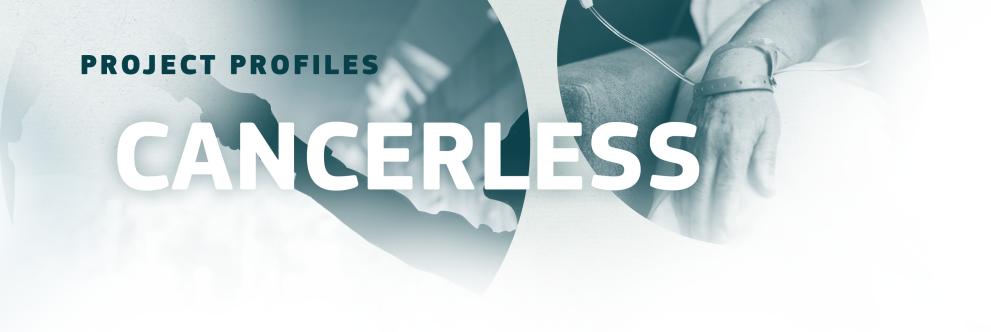
Cancer is the second leading cause of death in Europe and cancer-related mortality is twice as high among the homeless population.
On World Cancer Day, we spoke with Dr. Igor Grabovac, a specialist physician in public health and associate professor at the Department of Social and Preventive Medicine at the Medical University of Vienna, in Austria. Dr. Grabovac is the coordinator of the CANCERLESS project, which aims to prevent cancer among underserved homeless populations by delivering person-centred interventions and facilitating their timely access to quality prevention and screening services. The project works with homeless populations in Austria, Greece, Spain and the United Kingdom.
A unique project
According to Dr. Grabovac, the project plays a crucial role in the field of cancer research and cancer prevention, given its particular focus on highly vulnerable and underserved population. People experiencing homelessness have a life expectancy approximately 30 years shorter than the housed population and have higher prevalence of cancer and mortality. CANCERLESS is the first project tackling cancer among this vulnerable population in Europe. The project’s uniqueness also lies in its participatory co-design approach, which includes the population in decision-making processes of planned interventions, making these context-based and bottom-driven. Such involvement of people who experience homelessness in patient navigation processes contributes to improving access to equitable care and health literacy, and helps remove barriers to services.
Serving people experiencing homelessness
Accessing screening programs is particularly challenging for people experiencing homelessness. Besides structural barriers, such as the inability to receive an invitation for screening due to the absence of permanent address or lack of access to health/social insurance, this population faces substantial stigma and discrimination within the health care services due to its complex needs, often compounded by psychiatric comorbidities and trauma. As a result, distrust of the healthcare system prevails, and trauma-sensitive approaches are therefore needed.
The CANCERLESS project has focused on tackling these challenges by adopting a bottom-up intervention approach, which has proved to be highly successful in terms of uptake and acceptance. The pilot intervention involved more than 600 people experiencing homelessness, providing them with cancer prevention services and access to screening, where possible. Moreover, several cases of cancers were diagnosed early enough and could, therefore, be treated with surgical methods. The project consortium played a crucial role in securing additional funds and finding ways to cover the costs of these services, highlighting the need for greater equity in cancer care in Europe.
A truly European project - towards implementation at national level across Europe
“CANCERLESS project would not have been possible without the support of the EU funding programme Horizon 2020. We are very grateful to the EU for the funding, as it helped many people and allowed them to gain access to services they would normally not have access to”, says Dr. Grabovac.
Moving forward, Dr. Grabovac hopes that the results of the project will show the benefits of implementing the co-designed health navigator model. This model not only enhances healthcare access and empowerment within the population, but also holds the potential to streamline services, alleviate overall costs and pressures on the social system, and ultimately reduce the burden of cancer within the vulnerable population. The consortium is also working on creating a policy blueprint with the objective of implementing the co-designed health navigator model at national levels to better serve people experiencing homelessness across Europe.
BACKGROUND
Horizon Europe is the research and innovation programme of the EU for the period 2021-2027.
The aims of Cluster 1 ‘Health’ include improving and protecting the health and well-being of citizens of all ages by generating new knowledge, developing innovative solutions and integrating where relevant a gender perspective to prevent, diagnose, monitor, treat and cure diseases.
Horizon 2020 (H2020) was the EU’s multiannual funding programme between 2014 and 2020.
Details
- Publication date
- 2 February 2024 (Last updated on: 2 February 2024)
- Author
- European Health and Digital Executive Agency
- Programme Sector
- Health
- Programme
- Horizon Europe Cluster 1: Health
- Tags
- EU financing
- EUCancerPlan
- EUFunded
- Public health


